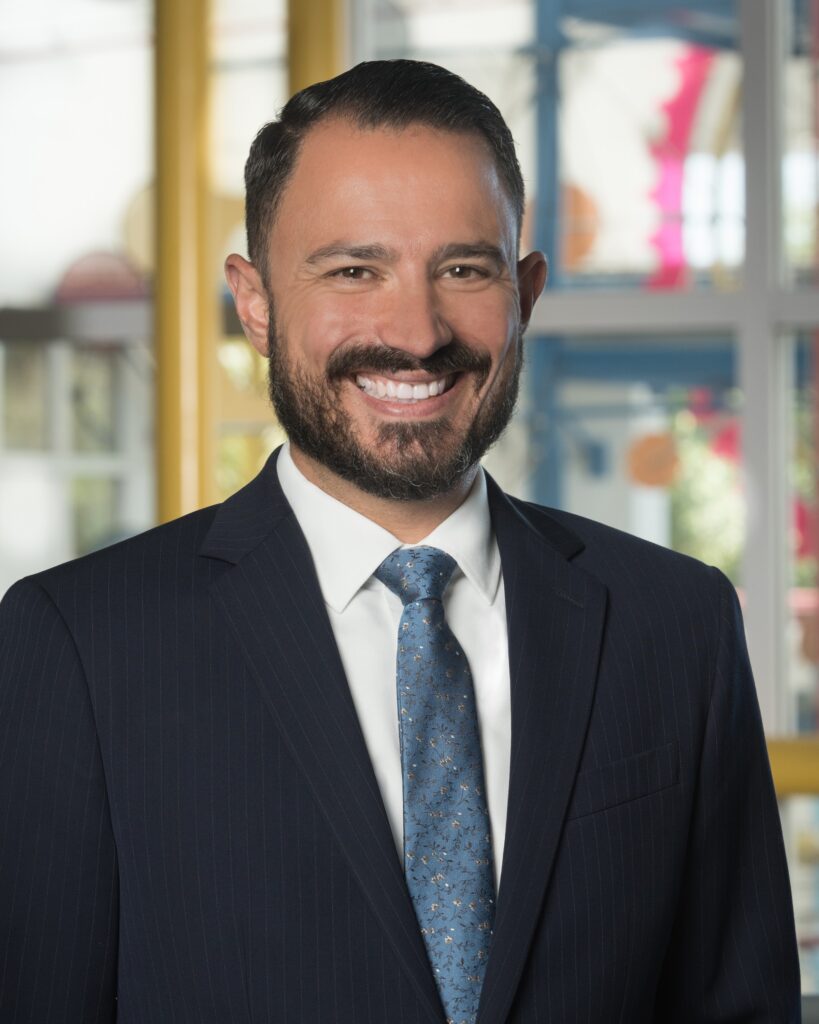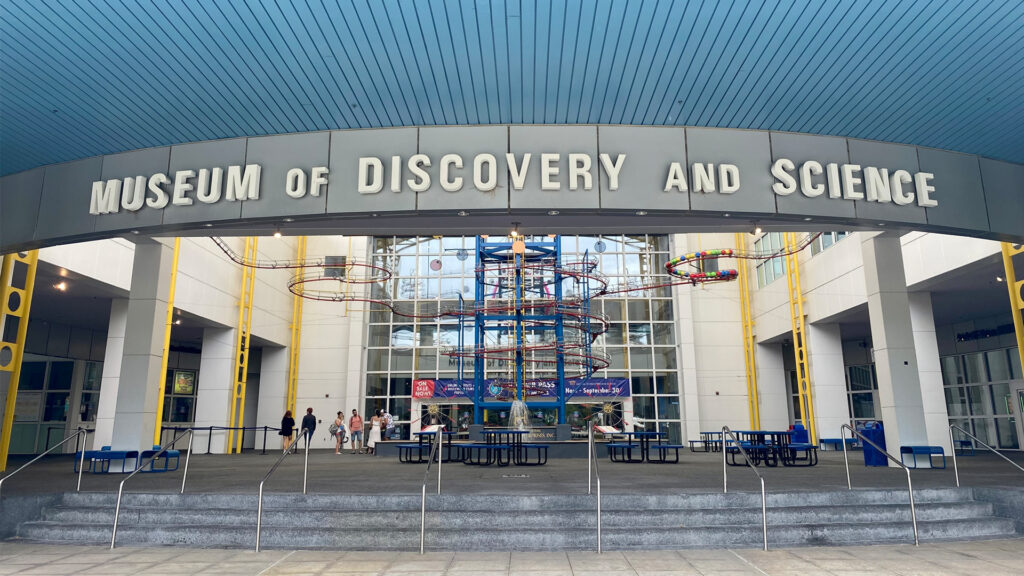The following is a Q&A conducted with Joe Cox, who has served as president and CEO of the Museum of Discovery and Science in Fort Lauderdale since February 2018. Prior to his current position, he worked in the museum field for more than 20 years. This interview has been edited for length and clarity.
What motivated you to work on environmental issues in the first place?

The museum has had a strong focus on environmental education since we were founded in 1977 as the Discovery Center. Environmental education has been one of our core values, and when we went through our strategic planning process in 2018-2019, we recognized that we really wanted to shift gears and focus on environmental sustainability as being one of our four core pillars along with early childhood education, physical science, and health and wellness.
Environmental sustainability, to us, said that we were moving in the direction of empowering people to make good choices that lead to making themselves more resilient to the impacts of climate change individually, as a community and as a region. When I came on board, I was incredibly impressed that in South Florida, municipalities, universities (and) corporate organizations had already made environmental sustainability and resilience areas of focus. How could the museum really build on that and play a role (is) where that all started from.
Since you’re based in Fort Lauderdale, which is kind of on the front lines for a lot of the climate issues, what would you say is a major challenge from climate change in the area?
We realized that we wanted to focus on environmental sustainability as one of our core pillars. When we did that … we put together what we call the Hub for Resilience Education. The idea is if you’re not in the university world (or) you don’t attend city commission meetings, it’s hard to know what’s happening in universities.
We did a front-end evaluation where we asked visitors to the museum, the community, what’s happening in South Florida to prepare us for the impacts of climate change. It became really clear that again, unless people attended city commission meetings or read the newspaper or in some way had access to what was happening in universities, their overwhelming response was nothing.
When we think about the role of the museum, we see almost half a million visitors a year. We can provide some insight into what’s happening at local universities and in the municipalities. So, we put together our Hub for Resilience Education Committee, which now has over 30 different organizations. We started talking about where we should focus, (because) there are so many issues around climate in Fort Lauderdale.
We can look out the window of my office at the river during king tides, (and) the park across the street is flooded. You can speak to some of our interns who take the bus to get to the museum and they’ll share with you their experience that (about the) heat. (It) continues to increase, and we’re not prepared for that. … We thought the best way to model all our work would be to start by looking at the Broward County Climate Action Plan. So, looking at the seven areas as our areas of focus: Policy, natural systems, water supply, built environment, innovation, energy resources and community outreach.
All of those have elements that are the most impactful. Is it equity in resilience? Understanding who is being impacted more because of where they live? … I don’t know that there’s one issue, although as we saw on the April 12 flood from rain, water and where it is and how it moves about has to be one of the most pressing issues.
What do you think the most effective measure the state could take to address climate change?
One of our partners on the Hub for Resilience Education, Project Drawdown, has done such a spectacular job laying out what the effective measures could be. When you start looking at their effective measures, there are so many solutions to this. Ultimately, it must start with being able to have cities, counties, manage and implement their plans, and ultimately get the funding to implement them.
How do you think climate change is going to affect future generations?

We are so excited at the museum about our internship program called Eco-explorers. This year, we’ll have 80 paid high school interns who spend a year with us learning about careers in the environmental sustainability or resilience field. … We’re working to try and make this as optimistic as possible.
There really is a huge mental health issue that’s impacting a lot of people, particularly high school and younger. This is a lot of pressure and I think for too long the adults of the world have been looking to children and younger adults and saying, “You’re going to solve this. You’re going to change the world and we’re still here as adults.”
This is our responsibility, and we can’t just defer this to them. We’ve got to really work to inspire them that there is optimism and that there is an upside to this. We’ve got to be talking about regeneration. It’s not just talking about, “OK, how do we fix this?” We’ve got to fix this and go beyond. We’ve really got to regenerate the community.
Museums really serve as this trusted messenger. When you come to a museum and read an exhibit label, you’re not saying, “Well, is this (the) right-leaning view or the left-leaning view?” It’ll go right down the middle, and we give the information and let people make their decisions.
I think climate change right now is affecting the younger generation by causing added stress. We’ve got to give them the skill set to be able to work side-by-side with us to work their way out of us. I am optimistic. I do think that there is an opportunity for us to beat this.
This Q&A was conducted by Paris Santiago, a graduate research assistant at Florida Atlantic University who is pursuing a master’s degree in the environmental science program. She has worked as a research assistant for FAU’s Center for Environmental Studies since 2022. The center manages and funds The Invading Sea.
Sign up for The Invading Sea newsletter by visiting here. If you are interested in submitting an opinion piece to The Invading Sea, email Editor Nathan Crabbe at ncrabbe@fau.edu.



